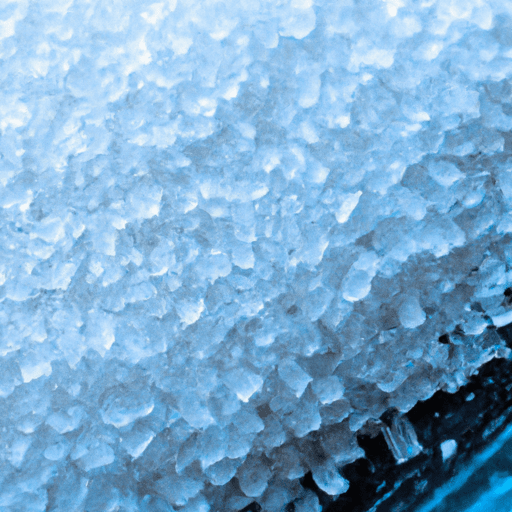Sugar Alcohol: Exploring a Sweet Alternative
If you’re looking for a sweetener that’s low in calories and doesn’t raise your blood sugar levels, then sugar alcohol might be just what you need. This intriguing ingredient, also known as polyols, has gained popularity in recent years as a healthier alternative to sugar in cooking and baking. In this blog post, we’ll take a closer look at sugar alcohol, including its taste, common uses in cooking, nutritional value, and fascinating history.
The Sweet Taste of Sugar Alcohol
Sugar alcohol provides a delightful sweetness that closely resembles that of regular sugar. However, it often has a cooling effect on the palate, which can be refreshing in certain recipes. The sweetness level varies depending on the type of sugar alcohol used, with some being nearly as sweet as sugar and others having a slightly less intense flavor. Regardless of the type, sugar alcohol brings a pleasant sweetness to dishes without the guilt of added sugars and the resulting spike in blood sugar.
Versatile Uses in Cooking
One of the great advantages of sugar alcohol is its versatility in the kitchen. Whether you’re an avid baker or a health-conscious home cook, sugar alcohol can be an excellent addition to your culinary repertoire. It’s frequently used in sugar-free desserts, such as cookies, cakes, and pies, allowing you to indulge in guilt-free treats without sacrificing taste. With its ability to mimic the structure and sweetness of sugar, sugar alcohol can also be used to sweeten sauces, jams, and even beverages.
Nutritional Value: Low in Calories, Low on the Glycemic Index
Sugar alcohol offers a unique nutritional profile that sets it apart from traditional sugars. While it provides a similar level of sweetness, it contains fewer calories, making it an excellent option for those watching their daily intake. Additionally, sugar alcohol has a minimal impact on blood sugar levels, thanks to its low glycemic index. This aspect makes it particularly suitable for people with diabetes or those following a low-carbohydrate or ketogenic diet.
It’s important to note that although sugar alcohol can be a healthier alternative in moderation, it should still be consumed in sensible amounts. Overindulging in sugar alcohol can have a laxative effect for some people, leading to digestive discomfort. As always, balance is key in achieving a healthy diet.
A Brief History and Interesting Facts
The use of sugar alcohol dates back many centuries. It was first discovered in the Middle Ages during the brewing process, where it can naturally occur. However, it wasn’t until the 19th century that sugar alcohol gained recognition as a sweetener. Over time, various types of sugar alcohols, such as erythritol, xylitol, sorbitol, and mannitol, have been discovered and utilized in different industries, including the food and beverage sector.
Interestingly, sugar alcohol is not solely derived from sugar. It can also be found naturally in fruits and vegetables, such as apples, pears, and corn. This natural source allows for a more sustainable production and reduces the reliance on refined sugar.
Sugar alcohol provides a fantastic alternative to traditional sugar, offering a sweet taste without the same impact on blood sugar levels. Its versatility in cooking and baking makes it a valuable ingredient for those seeking healthier options, without compromising on flavor. As with any ingredient, moderation is key to ensure a balanced diet. So go ahead, experiment with sugar alcohol in your favorite recipes, and enjoy guilt-free indulgence!
Sugar Alcohol
Origin: Sugar alcohols, also known as polyols, are a type of carbohydrate derived from sugars. They occur naturally in many fruits and vegetables, but they can also be produced through chemical processes. Common sugar alcohols include erythritol, xylitol, sorbitol, and maltitol.
Common uses: Sugar alcohols are widely used as sugar substitutes in various food and beverage products. Due to their ability to sweeten without adding as many calories as regular sugar, they are often found in sugar-free or reduced-sugar products such as candies, chewing gum, baked goods, and beverages. Sugar alcohols can also be used as bulking agents, moisture retainers, and to improve the texture and flavor of food products.
Nutritional benefits: Sugar alcohols provide fewer calories per gram compared to regular sugar, making them attractive for individuals looking to reduce their caloric intake. They are not fully absorbed by the body, which means they contribute fewer net carbohydrates and have a lower impact on blood sugar levels compared to regular sugar. Additionally, sugar alcohols do not promote tooth decay as much as sugar does since they are not fermented by oral bacteria.
Unique properties and historical significance: Sugar alcohols have a cooling effect in the mouth when consumed and can provide a slightly different texture and taste compared to regular sugar. They have been used since ancient times as natural sweeteners, with many civilizations incorporating them into their diets. Sugar alcohols gained prominence in the modern food industry as low-calorie sweeteners and sugar alternatives, particularly for individuals with diabetes or those following a low-carbohydrate diet.
It’s important to note that while sugar alcohols are generally considered safe for consumption, high consumption levels may have a laxative effect, causing digestive discomfort or diarrhea in some individuals, especially when consumed in excess. As with any food ingredient, it’s recommended to consume sugar alcohols in moderation.




Use the share button below if you liked it.
It makes me smile, when I see it.